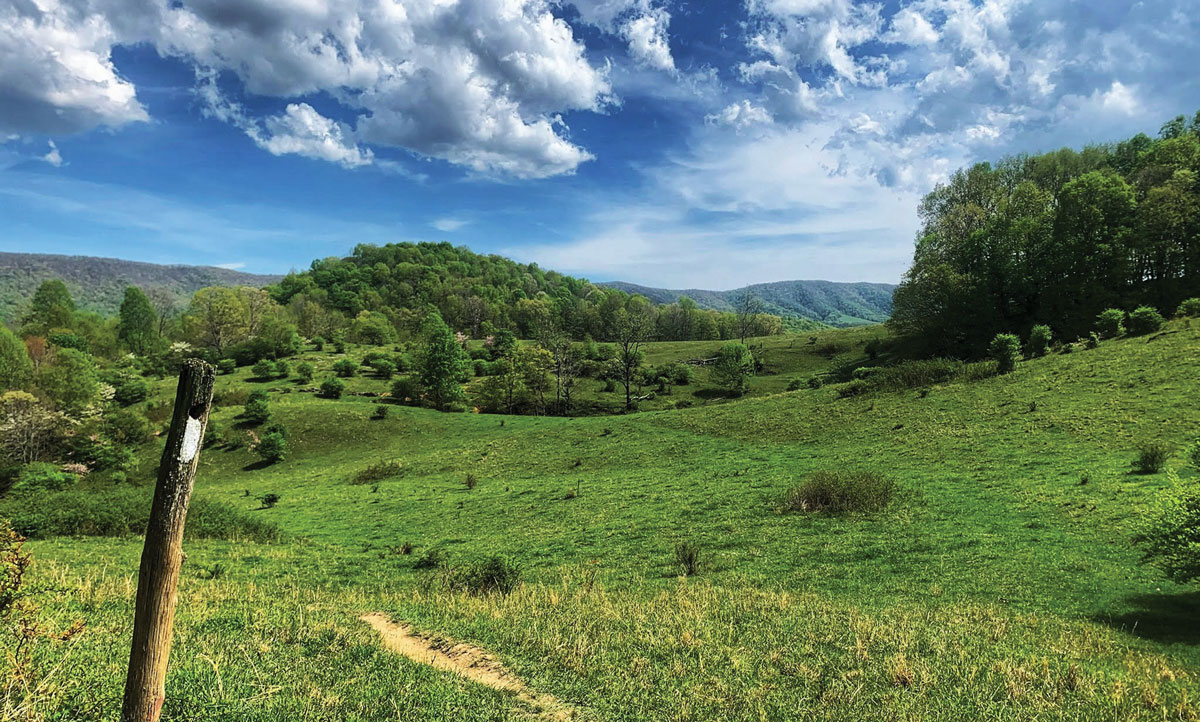
Almost one century after its publication, Benton MacKaye’s An Appalachian Trail: A Project in Regional Planning continues to be both relevant and prophetic. Take, for example, one of the reasons MacKaye identified the Trail as essential to mental health: “But living has been considerably complicated of late in various ways — by questions of personal liberty, and by ‘menaces’ of one kind or another. There have been created bitter antagonisms.” In an election year like 2020, few quotes from MacKaye’s article ring truer today. More to the point: never has an apolitical space like the Appalachian Trail been more necessary to escape the factionalism which, as of April 2020, will only become deeper as we head toward Election Day in November.
One of the privileges of being the Appalachian Trail Conservancy’s (ATC) chief fundraiser is learning the various affinities the ATC’s donors have to both the conservancy and the Trail. A few months ago, a large check appeared on my desk. I did not recognize the name. Only a phone number and address were listed. Nagged by curiosity and a sense of deep gratitude, I called the number and, on the second ring, spoke to “Yekke” (the donor’s Trail name, which is Yiddish). I learned, through the course of the conversation not only his relationship to the Trail (a former thru-hiker who, like most who have touched it, fell in love with the A.T.) but also the reason for the generous donation. One of the primary reasons was the ATC’s apolitical nature. We will work with anyone — regardless of affiliation — as long as they support the Trail and support our mission. We are blind to partisanship. And, in a world where this trait is exceedingly rare, Yekke wanted to support an organization whose only devotion is to the Appalachian Trail. The triggering moment, for him, was when he received an advocacy letter from ATC. When we identify any of the lawmakers in these letters, we do not identify whether they are Democrats, Republicans, or Independents. Only that they care — as our members and donors do — about the Trail.
This is an accurate reflection of the ATC’s distinction between politics and advocacy. The former muddies up the water while the latter strengthens our work. Anyone who is affiliated with the ATC — whether it’s our staff, our volunteers, our donors, or A.T. hikers — is, more than anything, driven by a clear love of the Trail and a mission to maintain and protect it. In light of this, we do not make assumptions about the ecosystem of Trail users and Trail supporters we engage. We do not assume your political leanings are to the left. We do not assume your political leanings are to the right. We only assume, as we do with anyone who sets foot onto the Trail, that you come to us because you believe in advancing our mission and work. When we recruit members of Congress to the House of Representatives Appalachian National Scenic Trail Caucus, we are agnostic to party membership. We are, however, deeply interested in our caucus members’ interest in supporting the Trail.
Which brings me back to Benton. His vision was, in some ways, a remedy to the vagaries of “civilized” life. In contrast to the stress, competition, and lack of oxygen in the industrializing cities of the 1920s, the Trail was meant to offer a refreshing contrast. The Trail offered oxygen (which led to optimism), it offered perspective, and it offered opportunities for “employment on the land” (which, in 2020, manifests itself as Trail stewardship). As Yekke so rightly said: those intended opportunities and advantages found on the Appalachian Trail are not subject to political debate or partisanship. They are inherent values found on the footpath, the adjacent landscape, and in the stewards who care for and protect the Trail. That is precisely why the ATC and the Trail have been, for decades, an invaluable and apolitical space.
By Shalin Desai